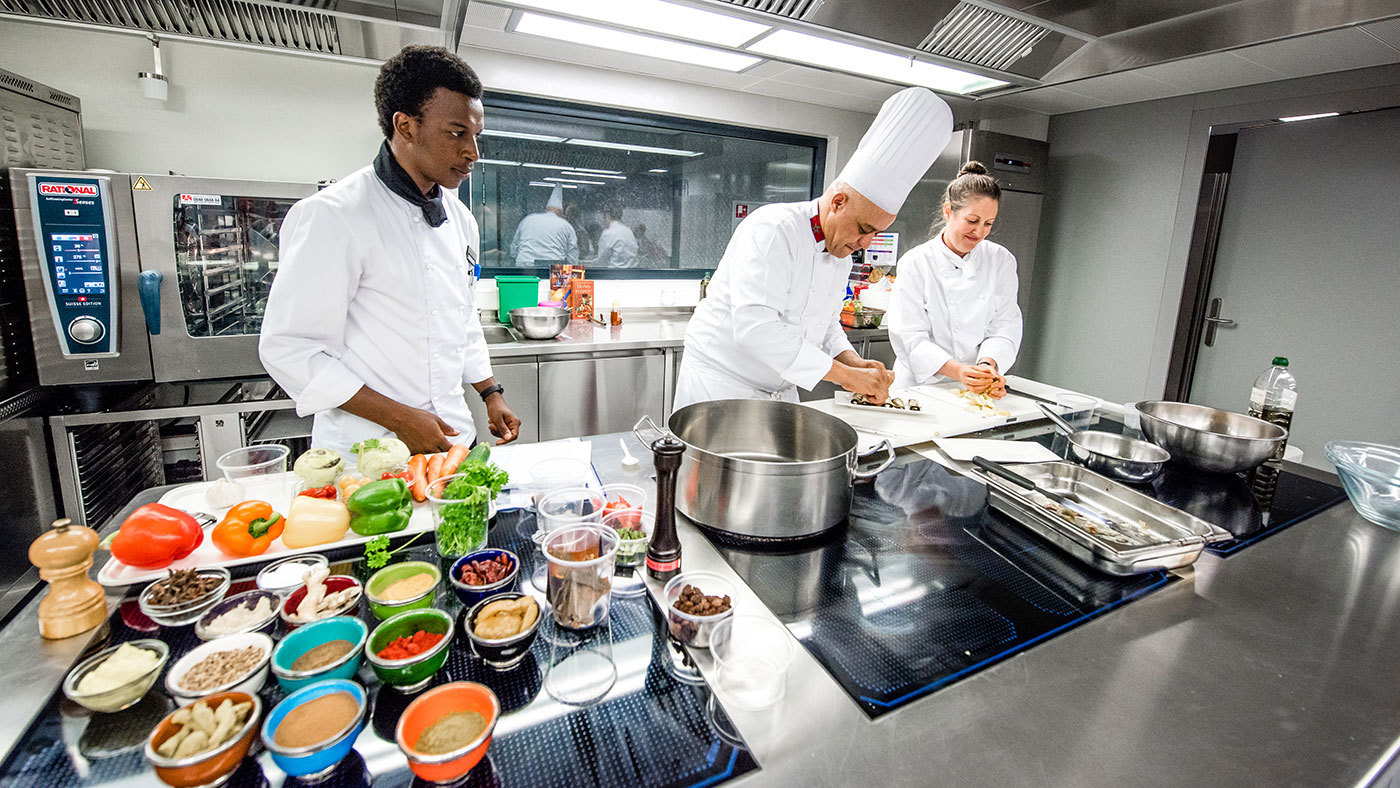Swiss Grand Diploma in Culinary Arts at Culinary Arts Academy Switzerland
Program Goal:
Master the fundamentals of culinary arts and develop your palate and senses by exploring different techniques, ingredients, and world cuisines.
Program Structure:
This 3-step program may be taken as individual building blocks of 11 weeks each or as the entire Swiss Grand Diploma suite over 33 weeks.
• Block 1: Foundation in Culinary Arts – Certificate in European Culinary Arts
• Block 2: European Gourmet Cuisine – Diploma in European Gourmet Cuisine
• Block 3: Master Gourmet Chef – Swiss Grand Diploma in Culinary Arts
Date
Four intakes a year: January, April, July, October
Program Content:
Essential of Cooking
This module covers the practical aspects of the classical and basic principles of culinary arts and will explain why they continue to be used. This includes basic culinary preparations including stocks, sauces and soups. Students will work both individually and as part of a team in order to evaluate personal progress. They will be exposed to various cooking techniques and competencies applied to meat, fish, vegetables, starches and grains. The additional use of the French language for culinary terminology is also required as well as an understanding of “kitchen culture”. In this module, students will practice the management of a range of resources in the kitchen such as food products and equipment and the maintenance of sanitary conditions. Students will apply the theoretical and practical knowledge gained in “Food Hygiene & Sanitation” and “Menus and Recipes that will run concurrently.
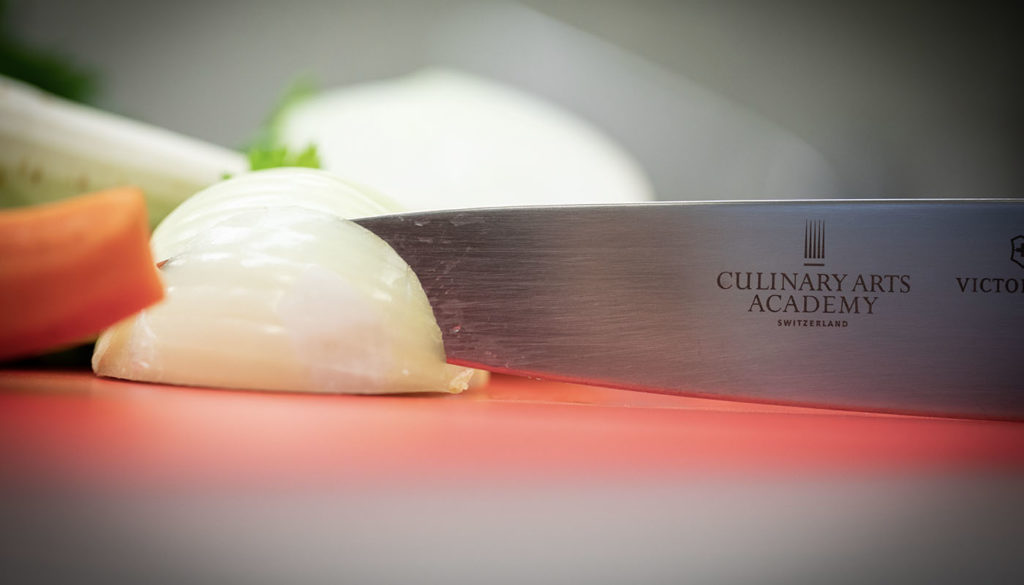
Essential of Baking, Pastry and Desserts
This module combines the skills of both a baker and pastry chef. It has been designed to allow students to perform in a kitchen environment to produce a range of pastry, cake and bread items. This is a practical module, but students will need to understand the different theoretical processes and techniques involved during classes. Demonstrations with practical hands-on classes ensure the students can reproduce a variety of dough, bread, pastries, pies, creams, special occasion cakes suitable for a dessert buffet or for a pastry boutique. This will enable the student to have a good understanding of the multiple facets of this speciality area.
The Chef’s Tool Kit: Culinary Trends
This module is designed to provide students with an overview of culinary trends in a rapidly changing world. The historical development of culinary trends through cultural and social dimensions of chefs and culinary environments will be examined. Examining the chef’s role in the development of food trends will be central to this course, this will include the importance of the his/her role in adapting to new tastes, climate change, technology and concepts.
The Chef’s Tool Kit: Food Hygiene & Sanitation
This module is designed to highlight why food safety is of paramount importance within any food service operation. This module covers the key principles of food handling and sanitation including the health risks involved with the culinary profession. It also introduces students to the Hazard Analysis Critical Control Points plan (HACCP). A further component of this module is to provide students with the knowledge and understanding of the laws and regulations related to safety and sanitation in the kitchen and their application in a working environment.
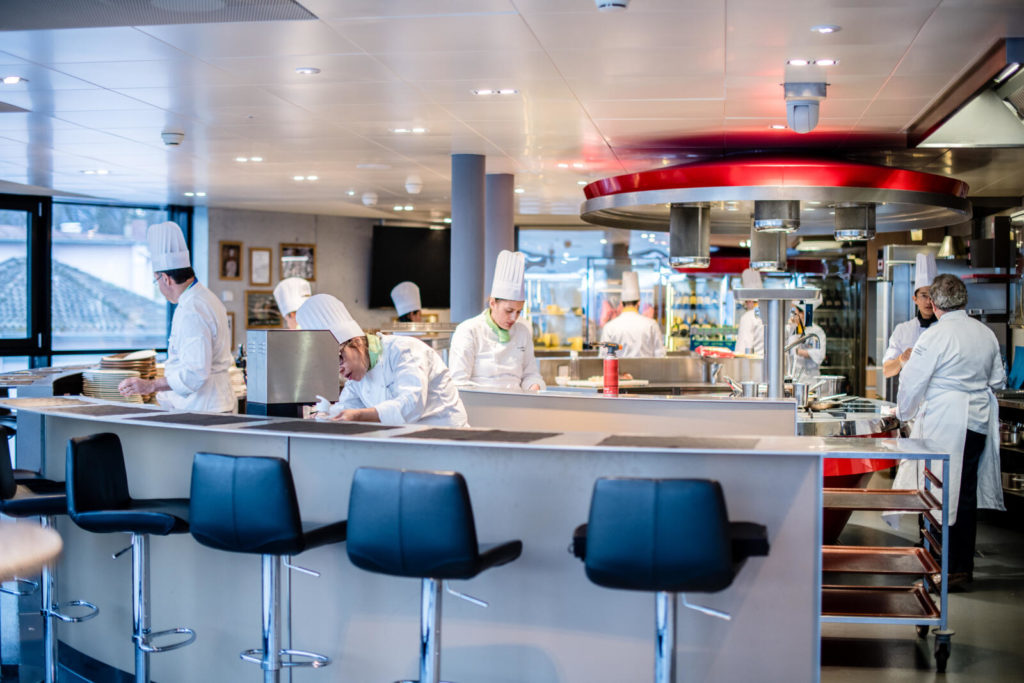
The Chef’s Tool Kit: Kitchen Design
This module is designed to provide students with an introduction to the aspects needed in the design of a kitchen in today’s environment. It introduces the general ideas of layouts and concepts behind a food and beverage operation as well as the impacts and needs for the physical, human, and financial resources of the operation as well as the transformation of such to reach operational goals and functional kitchen layouts. The emphasis of this module is on the practical activities of planning and creating suitable kitchen design and layout will focussing on elements such as the flow of food and staff, technical aspect, equipment, safety and sanitation of their design.
The Chef’s Tool Kit: Menus and Recipes
This module is designed to provide students with an introduction to the menu management through the preparation of a menu card for a specific restaurant concept. It introduces the general ideas of menu creation, writing, analysis, development, and costing with the objective of promoting your restaurant concept. The emphasis of this module is on the practical activities that students will go through in order to apply the menu management strategies in their daily menus.
Classical Desserts
This module has been designed to allow students to perform in a kitchen environment to produce a wide and different range of pastry, cake and bread items. This is a practical module but students will need to understand the different processes and techniques involved. This will include the baking of sweet items including desserts and cakes that may be decorated and presented in a variety of ways for consumption in different dining environments.
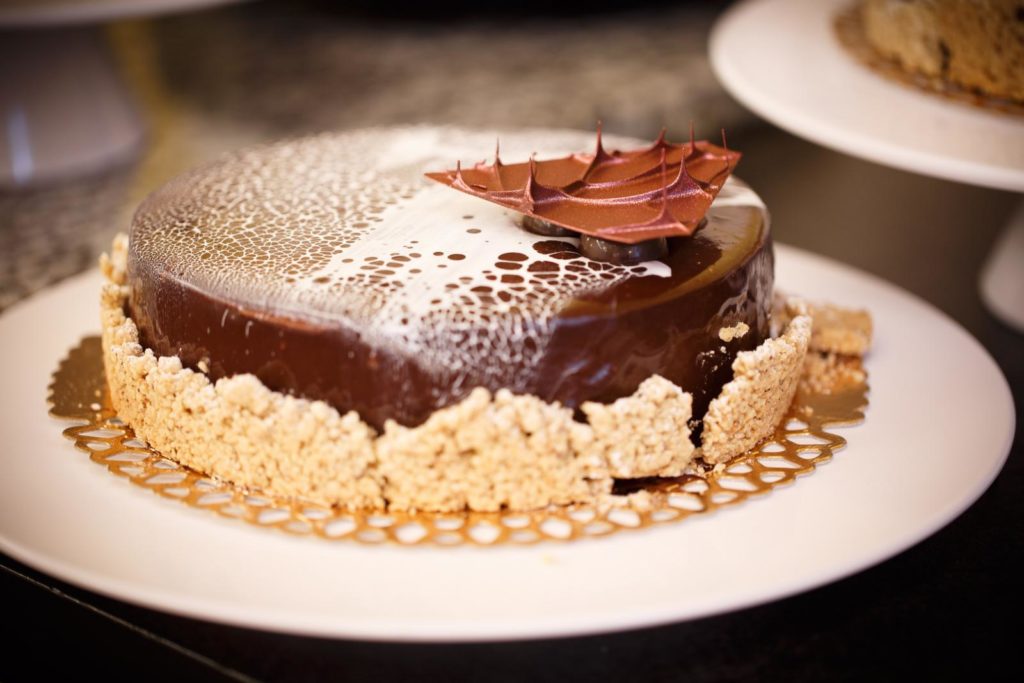
The Professional Chef: Chef Leadership Skills
This module equips students with the necessary skills to succeed in the workplace. Students develop interview, job search, and communication skills; build self-confidence; and learn to conduct themselves in a professional manner appropriate to culinary industry standards.
The Professional Chef: Service Etiquette
In order to develop a broader understanding of a Food and Beverage operation, the culinary student needs to be able to function in front of the customer. This course covers the basic theoretical and technical knowledge of service operations combined with practical skills
Classical European Cooking
Based right in the centre of Europe, Switzerland has been a melting pot of continental cuisines and cookery for centuries. In this module, students will gain an understanding of the importance that many European countries place on their national dishes and cultural traditions. Students will be exposed to European cultural and ethnic cuisines and learn to understand the role and importance of these cultures in today’s cuisines.
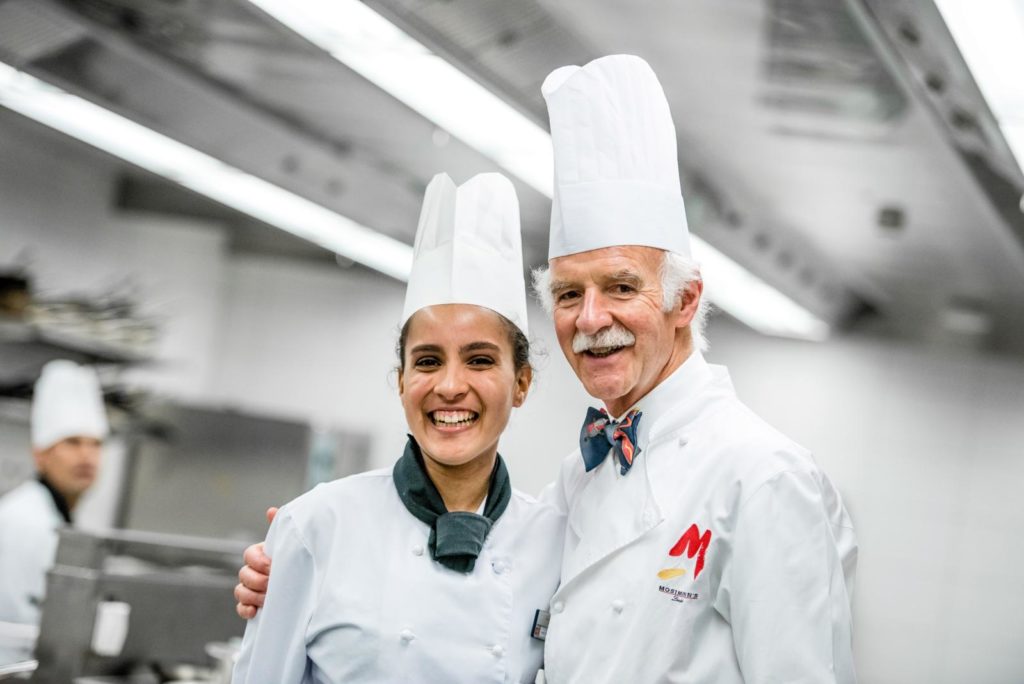
The Professional Chef: Health Foods and Special Diets
This module is designed for students to gain an understanding about nutrition and will build on the issues of food production and food safety. The key principles of nutrition will be covered and will include a chef’s perspective needed for designing menus and dishes for today’s customer – including those with special dietary and allergy requirements.
The Professional Chef: Wine, Beers & Cocktail Creation
This module explains and examines the making and service aspects of alcoholic, non-alcoholic beverages, and the basic understanding of how a beverage department in a large hotel is organised. Students will be exposed to wine appreciation in order to acquire the knowledge and skills to recognise quality beverages and to be able to identify attributes that will contribute to customer appreciation whilst recognising the need to make educated and responsible beverage choices based on different types of food.
The Professional Chef: Kitchen Management
This module is designed to provide students with an introduction to the management of a kitchen including the wide range of skills needed to manage in today’s environment. It introduces the general idea of systems management illustrating how a food and beverage operation’s menu impacts the need for the physical, human, and financial resources of the operation as well as the transformation of such to reach operational goals. Control tools typically used in the industry are introduced. The emphasis of this module is on the practical activities that managers of all sizes of food operations can use to plan and control their business. The focus of the course will be on menu planning, designing, analysis, costing, pricing and budgeting, preventing theft and implementing systematic control strategies.
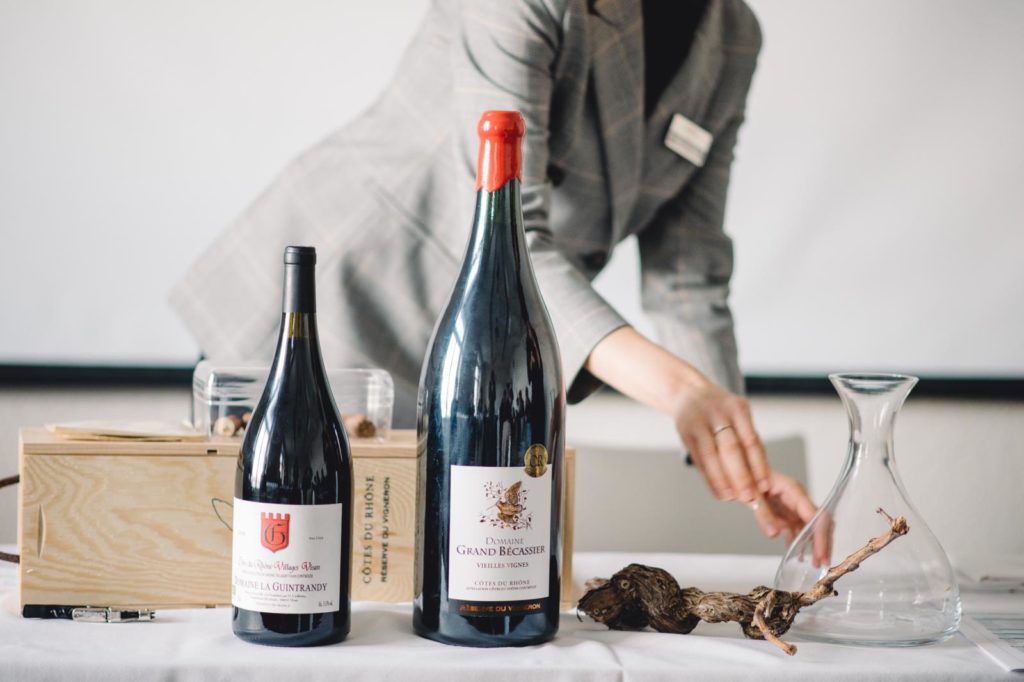
Gourmet Cuisine
You will learn through a variety of methods on the course and private research will be necessary to ensure that you read widely. The theoretical aspects of the module will be dealt with in lectures and Software applications. The module leader will use a blended environment via the Cesar Ritz student-learning platform to incorporate additional readings, exercises, etc. The kitchen and restaurant facilities will be used extensively for the planning and staging of the practical components of the course
Gourmet Dessert Creations
Students will create, present and evaluate gourmet desserts by applying a wide range of tools, techniques and skills. Students will generate novel and innovative creations, and turn desserts into art.
The Cutting Edge Chef: Farm to Table
The Farm to Table module teaches student to think about where their food comes from. Students will learn about restaurant that only use local products and design menus that take advantage of a farm to table concept.
The Cutting Edge Chef: Food Plating and Photography
This module is designed to provide students with a critical and practical understanding of food styling, food photography and food writing, and their importance in promoting food through the media. Students will develop basic food styling and photography skills.
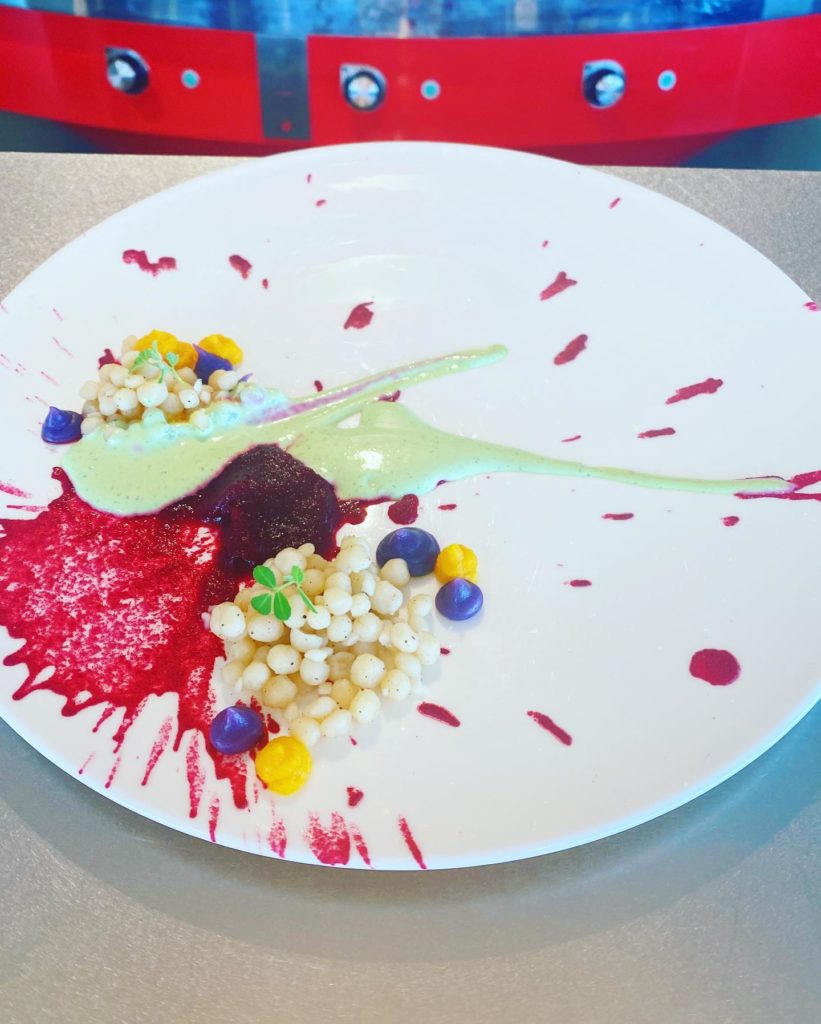
The Cutting Edge Chef: Gastronomic Experience
The course focuses on fine dining experiences, menu planning, cost and control, as well as the development of customer experience. Students will design their own restaurants: students will use their culinary knowledge, skill and creative thinking to compose an innovative plan based on their personal culinary focus.
The Cutting Edge Chef: The Art and Science of Food
A basic knowledge of chemistry is required to understand how handling and processing may affect food quality. This course uses fundamental chemical principles to give an understanding of food’s behavior under the conditions encountered in the processing and catering industry.
The Cutting Edge Chef: Wine & Food Pairing
This module examines advanced wine and food pairing techniques while exploring food flavours and ethnicity in wine matching. Students will be exposed to the theoretical, practical, scientific, financial and cultural aspects of wine making and culinary traditions which enhances the management of the dining experience. They will apply the theory of wine and food pairing using a practical systematic approach. Students will also combine their knowledge and understanding of wine with potential food partners using wine tasting techniques and analyse the importance of sequencing. The income generated by wine, the relevance of stock control and its security will also be investigated as a management issue.
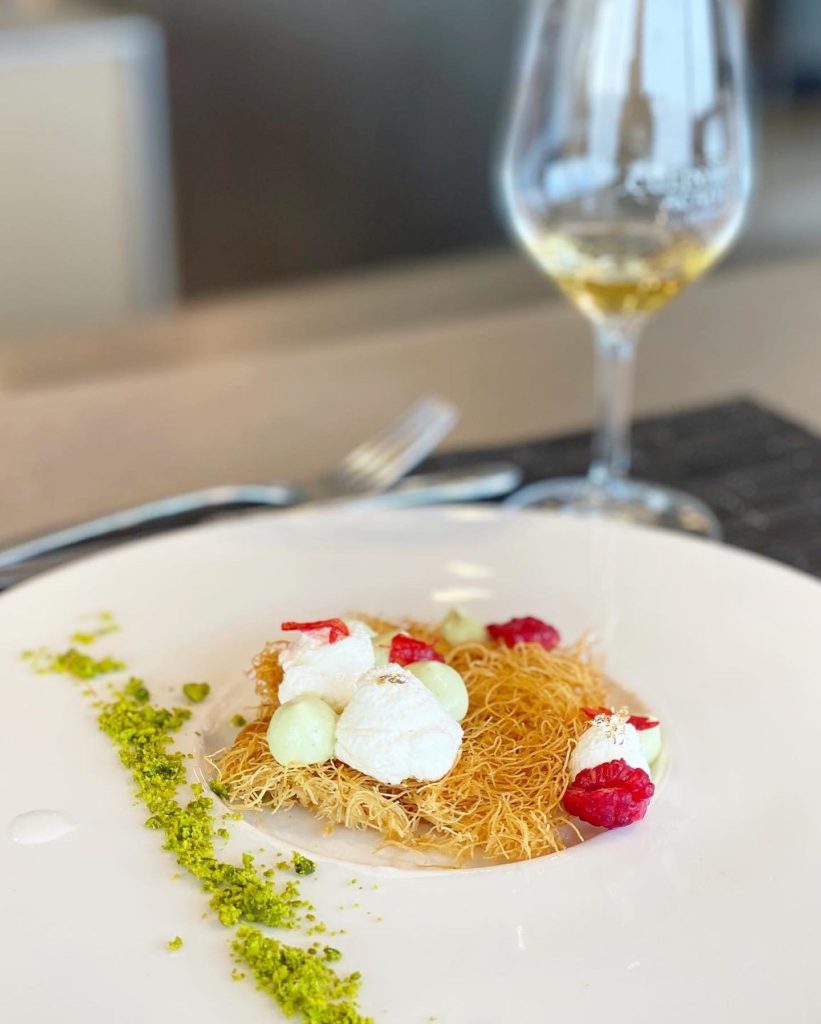
Optional internship (4-6 months) – Worldwide internship (local conditions apply) or paid internship in Switzerland
